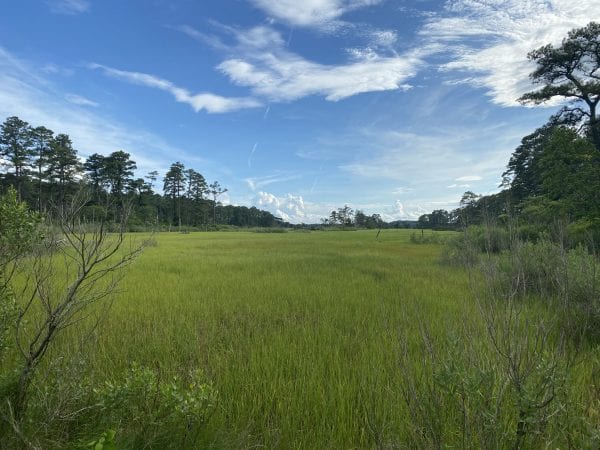“The eye and the ear are different listeners.” – Jane Yolen
When we read sensory details in a book, parts of our brain are activated. The parts that are activated are the same parts that would be active if we were experiencing the sense in real life.
So if you write about the spicy sweet scent of cinnamon, the brains of people who love cinnamon will light up (activate) like they were actually smelling it.
I practice using my senses to experience the world around me. Every other day I write down a sentence that includes one of my sensory observations.
“His phlegmy cough sounded like Velcro ripping in his chest.”
“The hot parking lot after the rain smelled like metal.”
“Water droplets crawling down my legs felt like ants.”
“Seeing the light underside of leaves warns me a storm is coming.”
The Wetlands
Take a look at this photo of a salt marsh near Cape Henlopen, Delaware.

What would it feel like if you were a giant and rubbed your hand across the grass tops?
What would it feel like walking through the marsh grass?
What would you hear in this salt marsh?
How would it smell? (Let me tell you, it has an ODOR!)
What do you see in this photo?
What can’t you see – but you know is there? (Hint: we did spy snakes and spiders!)
What things can we taste in a salt marsh? Have you ever tasted salt air as you inhaled deeply?
Practice
Good writing means using all of your senses to describe the world. For the next week, any time you write, include details from all five of your senses. Do this especially if you’re writing nonfiction!
- How does your favorite blanket smell?
- How does the water falling out of your faucet look?
- What do you see when you look at that rock in the dirt?
- What does the refrigerator sound like?
- Lick your CLEAN finger. What does it taste like?
Share your sensory sentences here!
